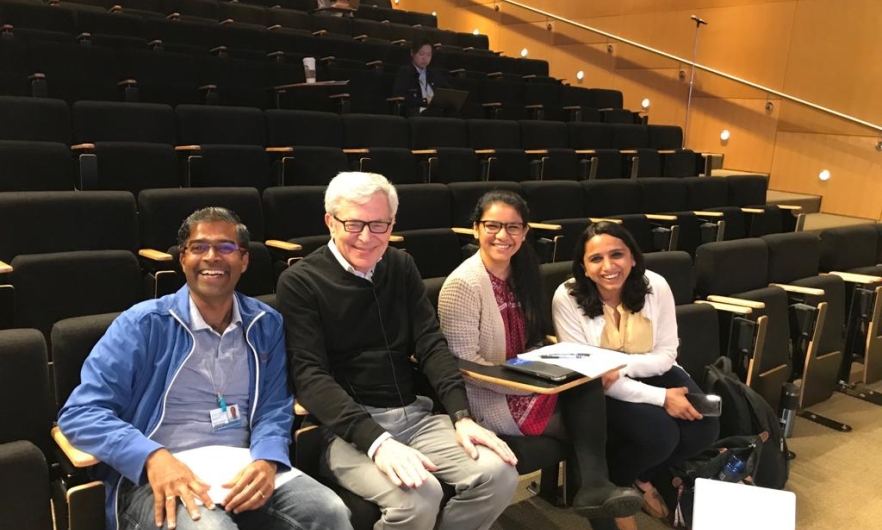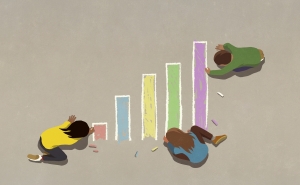Noted Biostatistician and Epidemiologist Jim Tonascia Retires
Jim Tonascia, whose public health career in biostatistics and epidemiology spanned more than five decades, retired from the Bloomberg School of Public Health this August.

Jim Tonascia, second from left, has retired after a public health career spanning more than 50 years.
Jim Tonascia, whose public health career in biostatistics and epidemiology spanned more than five decades, retired from the Bloomberg School of Public Health on August 2, 2024.
Tonascia arrived at the School in 1967 as a graduate student and received his PhD in Biostatistics from our School in 1970. Since then, he has been faculty in the departments of Epidemiology and Biostatistics, becoming full professor in 1981.
Tonascia’s scientific contributions were immense, particularly in large-scale clinical trials and clinical collaborations, somewhat incredibly serving as Director of a Data Coordinating Center for 16 centers and research groups! He formed a long-lasting partnership with Curt Meinert and the Center for Clinical Trials in the Department of Epidemiology and eventually was named the Curtis L. Meinert Professor in Clinical Trials. Tonascia’s contributions to the Center have been many, training generations of future trialists and publishing 275 articles across a range of topics and fields, including as a core member of large research groups studying childhood asthma, AIDS, emphysema, gastroenterology, fatty liver disease, and more.
A consummate educator, Tonascia received his first Golden Apple in 1976, followed by three more, and in 1981 received the School’s Stebbins award, recognizing his contributions to education at the School. He was the long-term instructor of “Biostatistics 624,” a course that helped students put into practice the biostatistical tools and models that they learned in the earlier courses in the sequence. At the time, Stata was the statistical package of choice and Jim took the time to learn all the nuances in Stata and his course materials quickly became a manual for all of the students who took his course.
Former department chairs of Biostatistics and Epidemiology recalled that Tonascia had a wry wit coupled with a self-deprecating sense of humor. He was humble, always giving praise to his team for their successes. Tonascia was also remembered as a dedicated teacher and collaborator, as well as a role model to junior faculty.
Although bittersweet, Tonascia’s retirement is certainly well-deserved, and we wish him the very best. His collaborative contributions have left a tremendous impact on the culture of our Departments, the School, the University, and our fields.
More from the Bloomberg School
- See latest headlines
- Learn more about our departments:




